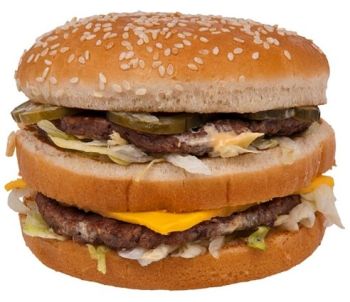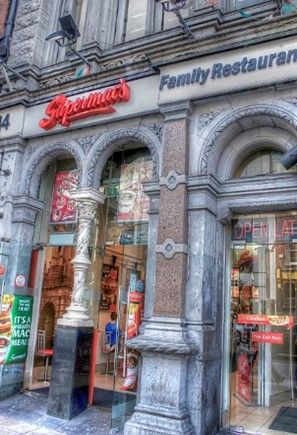The recent EU judgment in the trade mark case involving the Irish company, Supermacs and the US corporation, McDonald's (the owner of the trade mark, BIG MAC) has been much in the news with judgment handed down on 5 June 2024.
 |
 |
| *Image credit | *Image credit |
Cancellation of a trade mark registration for non-use
In the EU, as in many parts of the world, a trade mark registration can be attacked if there has been no use of the trade mark over a period of five years or longer, without there being any good reason for the non-use, the 'use-it-or-lose-it' principle.
There are good reasons for the principle - it shouldn't be possible for a company to register a trade mark if it has no real intention of using it, but simply wants to make sure that competitors don't use it either.
The facts
In 2017 Irish company, Supermacs filed an application to revoke (cancel) McDonald's' EU registration for the trade mark BIG MAC (registered since 1998) for all the goods and services covered by the registration on the basis of non-use.
EUIPO's Board of Appeal (BOA)
The BOA held that McDonald's had proven use of the trade mark in relation to some, but not all, of the goods and services. It ordered cancellation in respect of meat sandwiches in class 29, chicken sandwiches in class 30, and 'services rendered or associated with operating and franchising restaurants and other establishments or facilities engaged in providing food and drink prepared for consumption and for drive-through facilities' in class 42.
The BOA ruling was taken on appeal to:
The EU General Court
I'll deal with the main points made by the court:
Meat sandwiches – they're absolutely fine!
McDonald's had no difficulty establishing use of its trade mark in relation to 'meat sandwiches'.
But not chicken sandwiches
The General Court, however, found that there wasn't satisfactory proof of use of the trade mark BIG MAC in relation to 'chicken sandwiches' and 'foods prepared from poultry products'.
The printouts of advertising posters and screenshots of a television commercial that were submitted did show some use of the trade mark, but not 'real' commercial use. The General Court held that there was no detail regarding the number of goods sold, the length of the period during which the trade mark was used, the regularity of sales, and the prices at which they were sold.
Nor services
The General Court also held that there was no evidence of use of the trade mark BIG MAC in relation to ' services rendered or associated with operating restaurants and other establishments or facilities engaged in providing food and drink prepared for consumption and for drive-through facilities; preparation of carry-out foods'. The trade mark McDonald's had obviously been used for restaurants, but BIG MAC had not.
Proof rather than probabilities or presumptions
The General Court made the point that 'genuine use of a trade mark cannot be proved by means of probabilities or presumptions, but must be demonstrated by solid and objective evidence of actual and sufficient use of the trade mark on the market concerned.' Such evidence had not been forthcoming.
Always look on the bright side of life
Although this may sound pretty serious for McDonald's, these comments from a UK lawyer perhaps put the judgement in perspective:
'The press has made the recent judgment of the General Court... sound like a crushing blow, but it is not as terrible for McDonald's as it may seem. McDonald's still has a registration for meat sandwiches and for foods prepared from meat, as they did demonstrate use of Big Mac for meat sandwiches.'
Takeaways...see what I did there!
Here are a few:
- A registered trade mark must be used - if it isn't it will become vulnerable to attack after five years.
- The trade mark must be used in the form that it is registered - if it isn't, the use may not be sufficient to save the registration from attack.
- Keeping records of trade mark use is critical.
The content of this article is intended to provide a general guide to the subject matter. Specialist advice should be sought about your specific circumstances.


